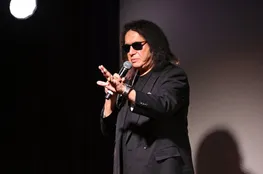The Star-Ledger, New Jersey's largest newspaper, is set to end its print edition on February 2nd. As part of this transition, Newark Morning Ledger Co.—the owner of the Star-Ledger—will also close its Montville production facility. This means another longstanding publication, The Jersey Journal, will cease its operations after 157 years, issuing its final print on February 1st. This closure highlights an industry-wide shift towards digital platforms, with both the Star-Ledger and Jersey Journal continuing to provide news online at NJ.com.
Sister newspapers like the Times of Trenton, the South Jersey Times, and Hunterdon County Democrat, owned by Advance Local, will also stop their print editions, signaling a broader digital transition for these publications. Advance Local's President, Steve Alessi, emphasized that this move allows for deeper investment in journalism by capitalizing on digital advancements. The online editions plan to feature exclusive content, positioning the transition as a move towards more dynamic journalism.
Steven Miller from the Rutgers University Department of Journalism highlights this as a natural evolution in media consumption. Across history, information dissemination has moved from print to radio, television, and now online platforms, evolving further onto mobile devices. Miller also notes financial considerations influencing such transitions. Large media conglomerates often view newspapers as financial entities where unprofitable ventures are discontinued. Meanwhile, hyperlocal platforms like Patch and TAP try to fill gaps left by traditional outlets.
Public reliance on new media formats reflects broader societal shifts. Online platforms empower users to become part of the news dialogue, a dynamic that both democratizes information but also potentially disrupts traditional reporting narratives. As a result, misinformation can proliferate easily, complicating public understanding. This evolving landscape underscores the transition's complexity, emphasizing the need for critical media literacy in navigating modern information spaces.
























